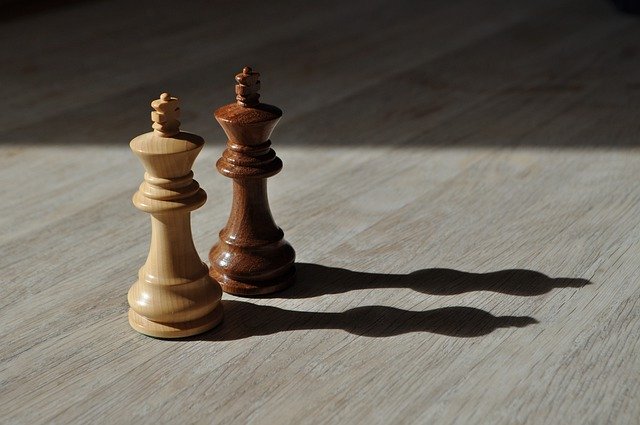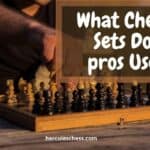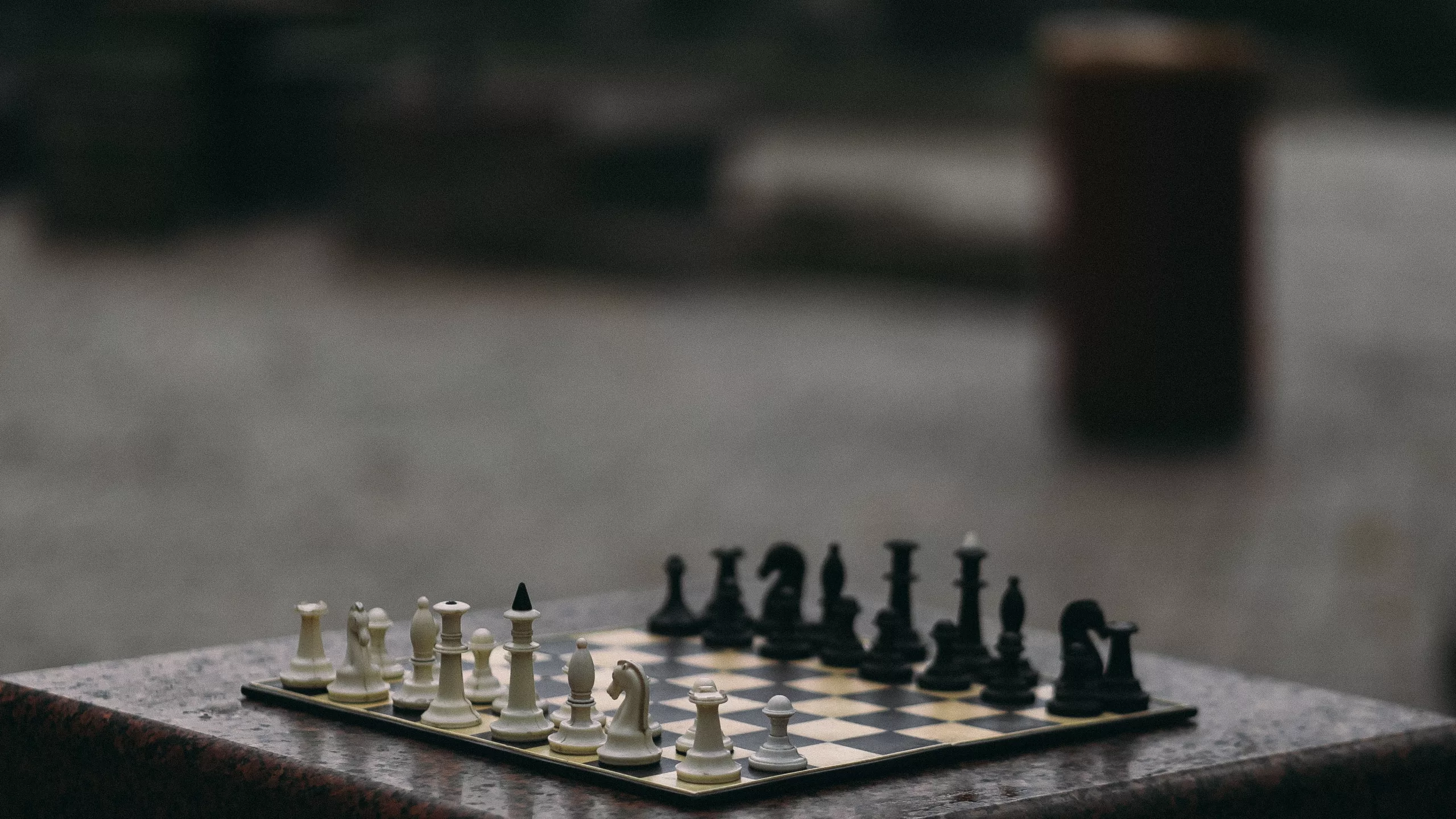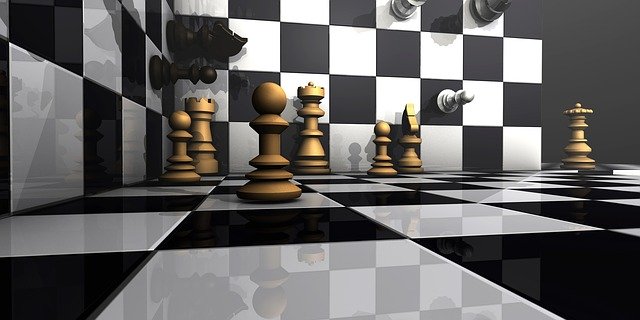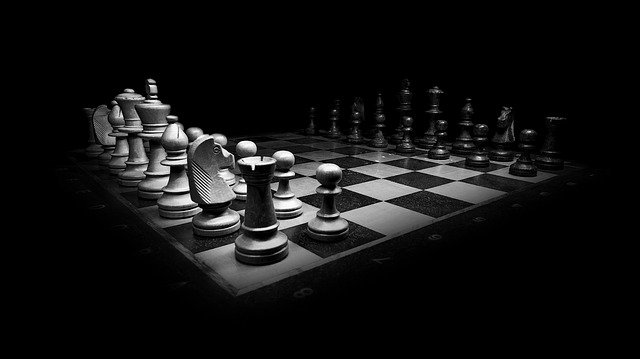The king is the most important piece on the chessboard and is the commander of the whole army. The objective of the game is to trap your opponent’s king or deliver checkmate. This means you must protect your king at all times. The downfall of your king, as in days of old, means your opponent has won the battle. Now, if the objective of the game is to trap your opponent’s king, does this mean it can be captured by an enemy piece? or better yet, can a king kill a king in chess?
If you said no, then you are correct!
Because the objective is to trap your opponent’s king (deliver checkmate), then A king can not capture a king in chess and the same goes for any other enemy piece.
Let us better understand why a king is not allowed to capture an enemy king and what actions we should take if this scenario should ever occur.
Related Post: How does the king move?
The King and the Endangered Square
Because the King is the most important piece on the board, the king should never stay on or move to a square where he could be captured by an enemy piece. If this scenario should take place, then we call this an “illegal move”.
NB: Two Kings can not stand next to each other because a king control all 8 squares surrounding it
Two Kings cannot stand next to each other
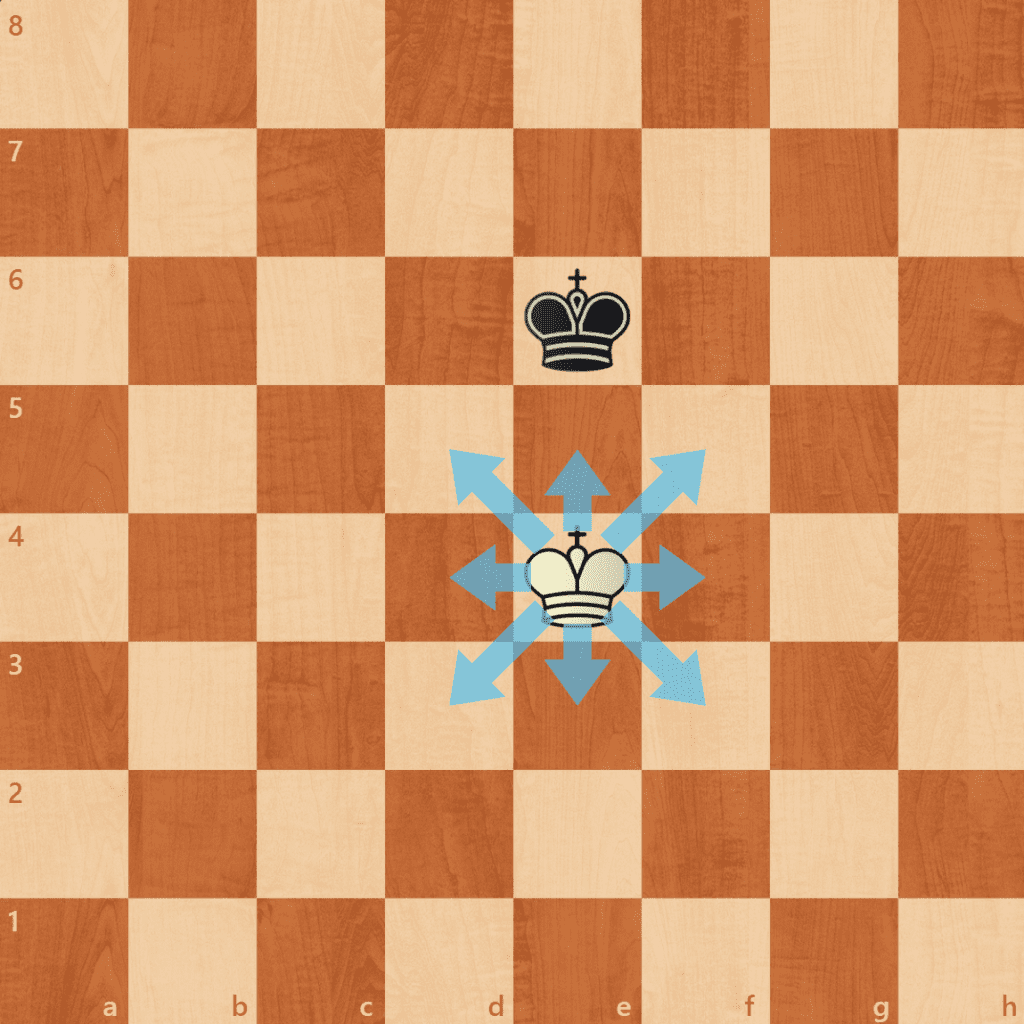
Below is an example of a king pawn endgame that is played quite often. The game was played between a 2000-rated player and an 1800-rated player. It’s white to play and he has a clearly winning position. Both players were down to their last minute on the clock and on the 48th move, the black player mistakenly moved his king next to the white enemy king.
Can the white King capture the Black king?
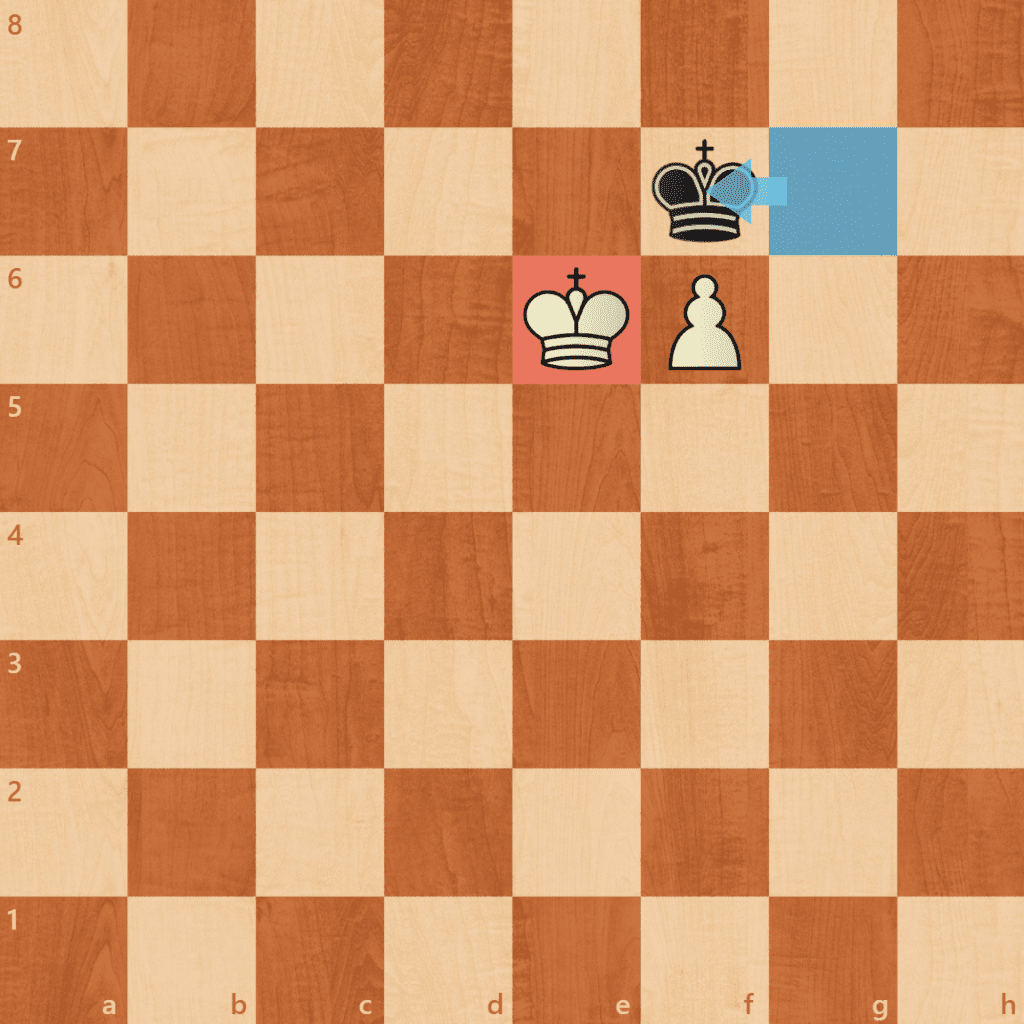
Now you might be wondering, should white capture the black’s king? If you said no, then you are correct.
In this scenario, black made an illegal move by bringing his king onto an endangered square next to the enemy king. But what should you do when your opponent makes such a mistake?
Well, there are a few actions that can be taken if your opponent brings his king onto an endangered square or make any other illegal move. The most practical advice is to:
‘Simply tell him to take back the Illegal move’
Pause the clock, and tell your opponent he made an illegal move. Just because your opponent made an illegal move, doesn’t mean he’s lost the game. All he needs to do is take back the illegal move and continue where he left off.
On the other hand, there are a few consequences for making an illegal move in chess.
Here are the penalties for making an illegal move:
Penalty#1: If both players have under five minutes and are down to the wire, making an illegal move will allow your opponent to gain some extra time. Here are the exact steps you should take when your opponent makes an illegal move in such a scenario:
- Pause the clock and summon the arbiter.
- Explain to the arbiter, where your opponent made the illegal move.
- The arbiter should give you anywhere between 2-3 minutes of extra time on the clock. (He should use his discretion)
- The opponent should withdraw the illegal move and play a legal one instead.
Penalty#2: The second penalty can result in the loss of the game. In most cases, making 2 illegal moves in a single match can result in the loss of a game. Sometimes the arbiter may extend this to 3 illegal moves depending on his discretion. It is important to remember this rule when playing in chess tournaments. If you’re not sure about the number of handicaps given, please contact your Arbiter before the beginning of the match.
No Penalty: If the time on the clock is anywhere above 5 minutes then no penalty is given on the first illegal move. An arbiter is usually not needed in this scenario and you can politely tell your opponent to take back the move if it was a genuine mistake.
Now that we know what is an illegal move and the actions to take if the king should step on an endangered square, let’s dive into some frequently asked questions.
Is it illegal for a King to Kill a King in Chess?
If a king should capture a king, then it is deemed illegal. In fact, both players have made an illegal move and the arbiter should be quickly summoned before the matter is blown out of proportion.
Illegal moves made:
- The first player made an illegal move by moving his king to a square where he could be captured by an enemy piece (the opponent king)
- The second player should have summoned the arbiter or called out the illegal move, but instead, he captured the enemy king and made an illegal move.
What To Do when both players make an illegal move?
The best thing to do in this case is to summon the arbiter. Since both players made an illegal move on each turn, ‘no penalties should be given to either opponent’. The player who made the first illegal move should simply take back the move and continue where the game left off.
Can A King attack enemy pieces?
In chess, the attack means the threat to capture a piece. All chess pieces can attack in the chess game, even the king. However, the king can only attack a pawn, knight, bishop, and rook, but not another King or Queen
In the image below, the King is attacking the Bishop, Knight, and Rook all at once!
White King attacking multiple pieces at once
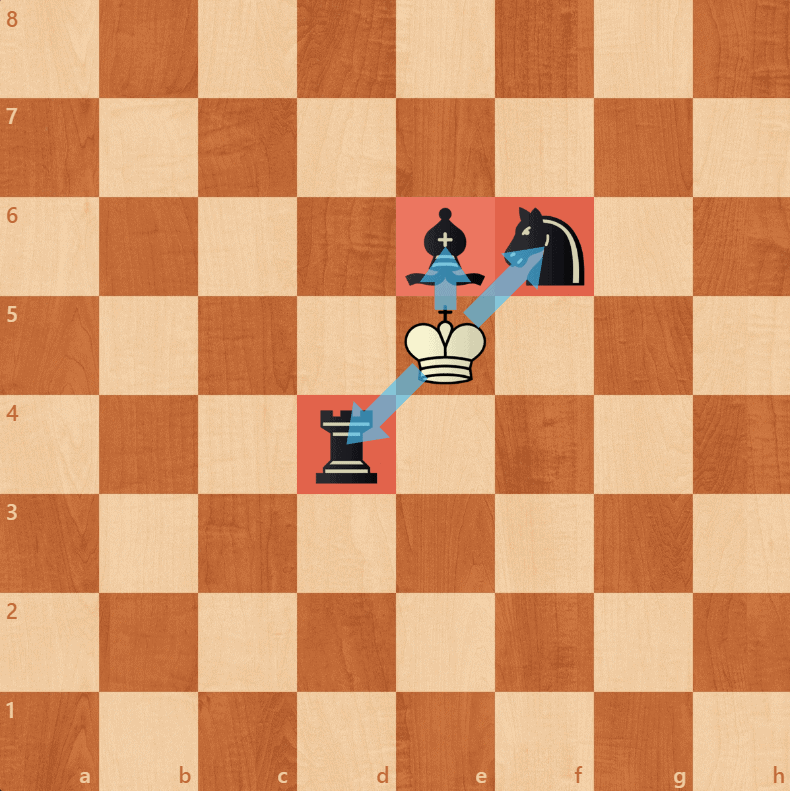
A king can never come close to or attack the enemy king or queen because of all the squares they control around them.
Diagram showing squares controlled by enemy Queen – White King cannot enter the squares controlled by enemy Queen.
Black Queen controlling squares
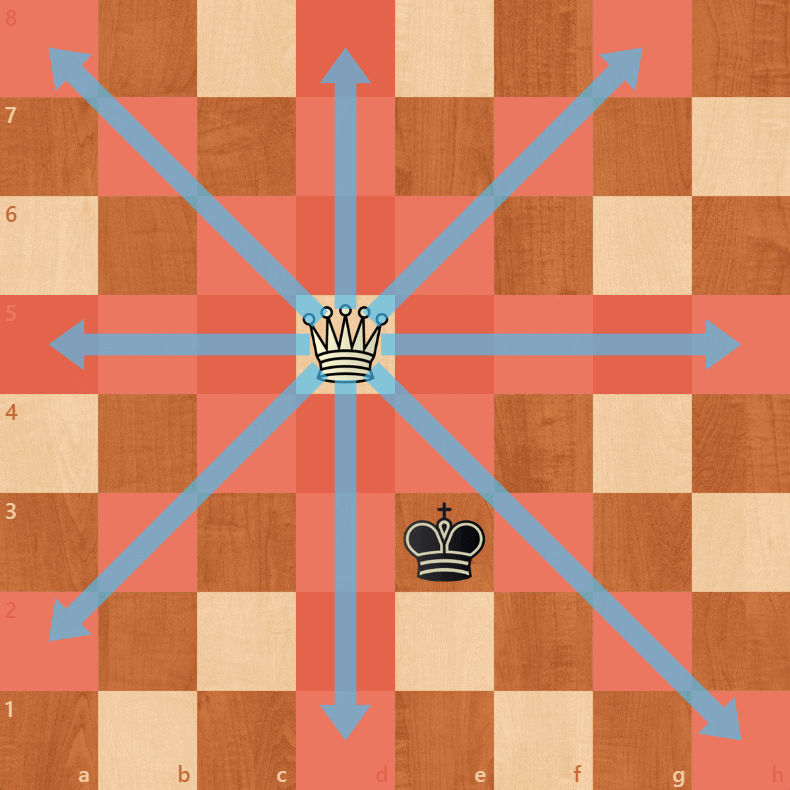
Similarly, a king cannot enter the squares controlled by an enemy King.
Even though the king can not attack the enemy queen, it can still capture the queen if it comes close enough to deliver a check (attack the King).
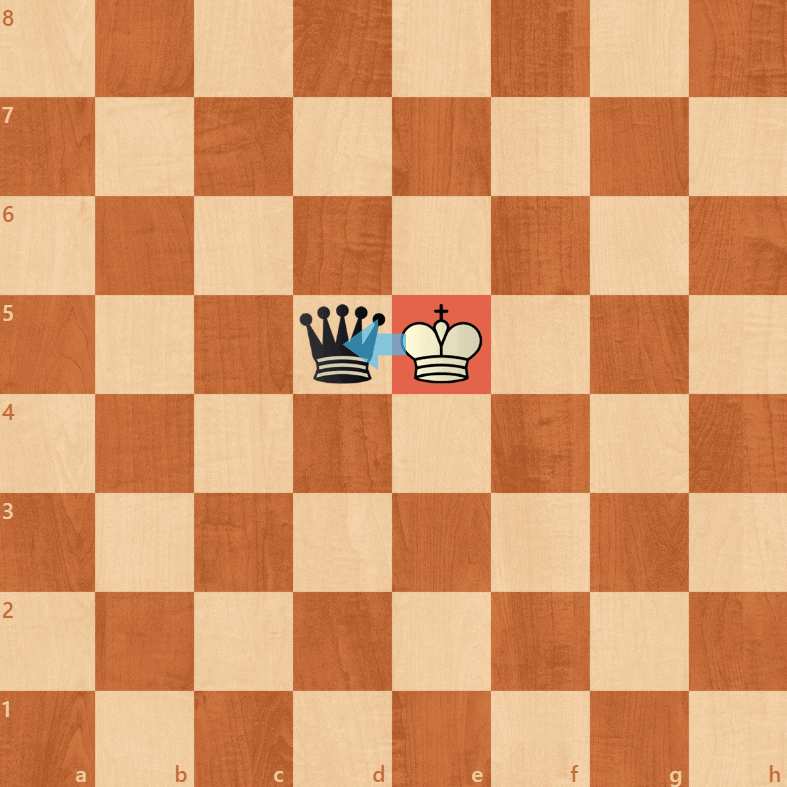
In this position, the King can capture the queen on his next move. The king captures pieces in the same way that he moves. He can take any enemy piece that is standing next to him.
The Opposition of the two Kings – Basic Endgame Knowledge
A king can not stand next to an enemy king let alone capture it. However, the two kings can oppose each other during the endgame and are one square separated apart.
An opposition in chess is the quest for domination between two opposing kings, whereby one tries to become stronger than the other. In a king pawn endgame, it’s more likely to make an illegal move due to time pressure. One of them can be moving your king next to the enemy pieces. It’s important to have the opposition if you’re trying to win or force a draw.
In the position below, whoever moves loses the opposition.
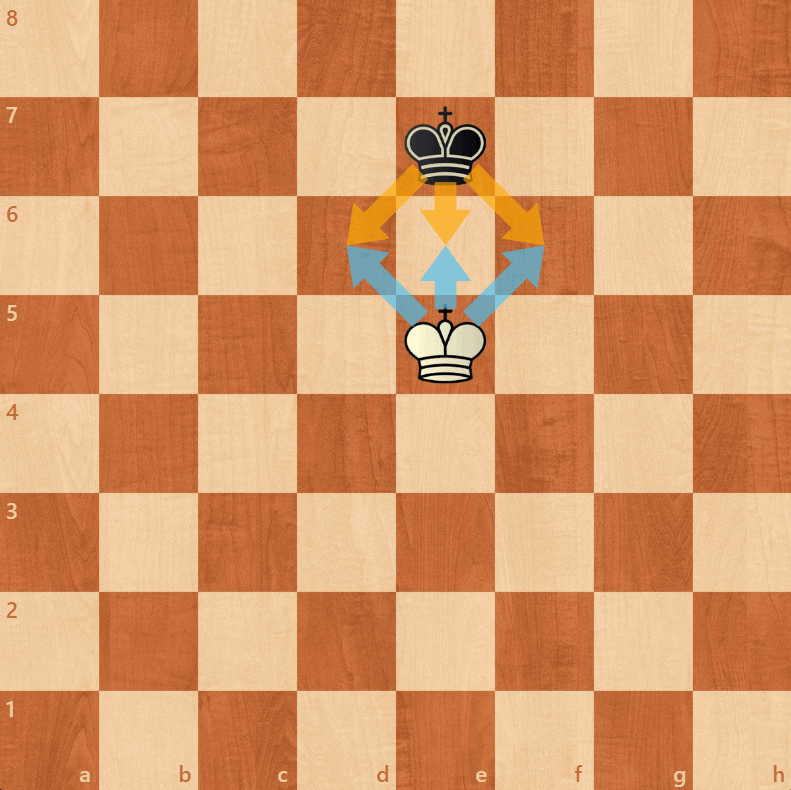
To win a king pawn endgame, you must first get your king in front of your pawn while possessing the opposition. (Open pgn from mobile)
White should play Ke5. This brings his king in front of the pawn and opposes the black king. White should steadily move the king up the board while maintaining opposition. Once the pawn reaches the queening square, its game is over.
How to draw a King-pawn endgame
If a player is a pawn up, it doesn’t necessarily mean he wins the game. If the opponent manages to get his king in front of the enemy pawn, it’s game over. Let’s take a look at an example.
Let’s look at an example where black is down material but managed to draw the game.
An exception to the rule – Can A King take a King in Chess?
In an exciting game of Bogus Chess, the king can be captured if it moves to an endangered square or fails to get out of check. This is the only exception when the king can be captured.
Bogus chess is a team sport played between two teams. The objective of the game still remains the same, “checkmate the opponent king”. However, if a player makes an illegal move, then the game is over.
Each team usually consists of two players, one player playing the black pieces and the other controlling the white pieces. The fun part about this game is that pieces that are captured can enter back into the game to help attack the enemy pieces and the king. (Your teammate will provide you with the pieces he captured in his game)
In this type of game, quick attacks are more important than the usual principles of chess. And, sometimes unusual piece sacrifices can be done as early in the opening just to provide your teammate with some material to help out with his attack or defense.
